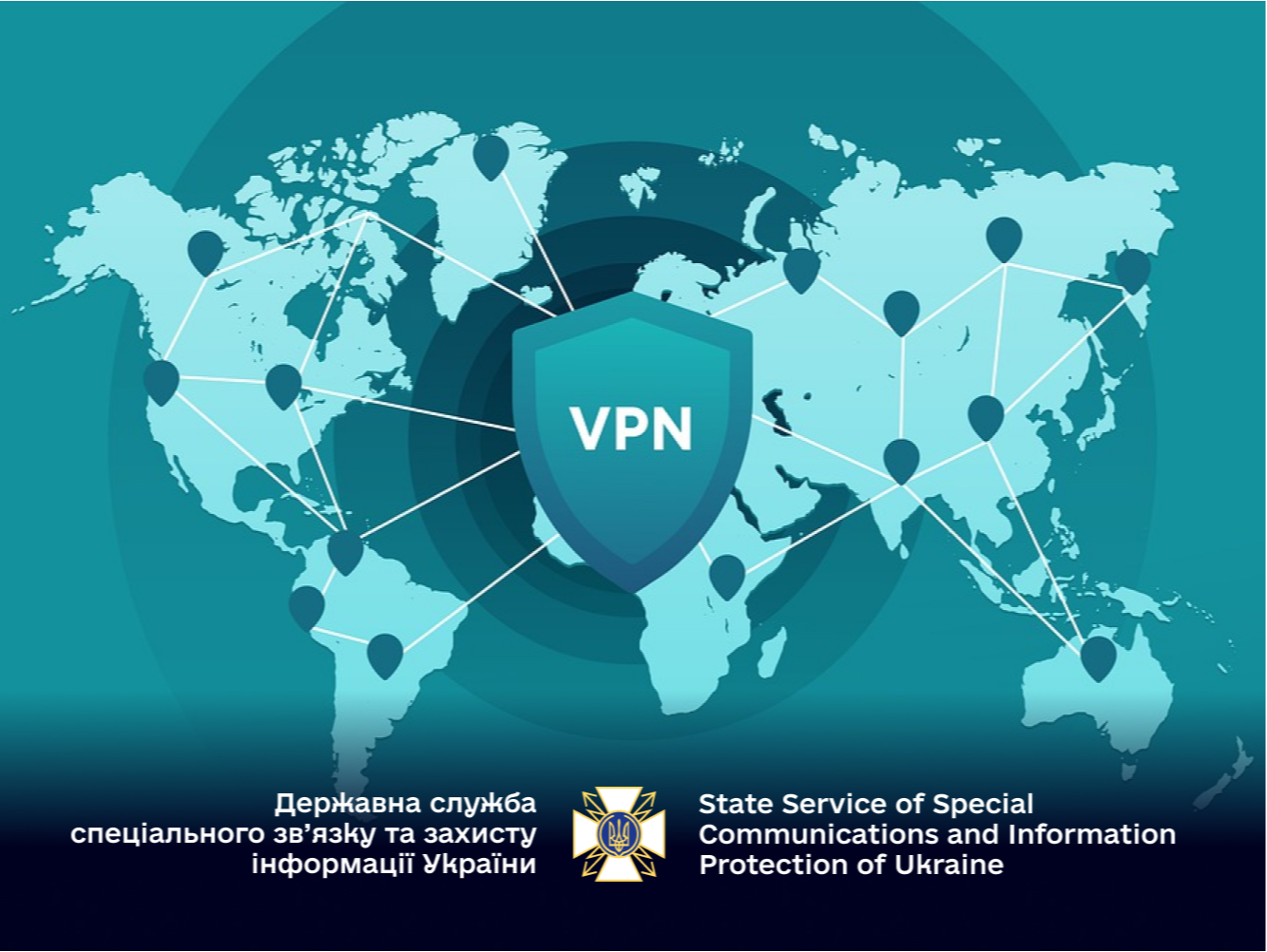
What is a VPN and how to use it safely
The occupiers in the temporarily occupied territories are trying to connect Ukrainians to Russian Internet networks, where there is equipment for filtering Internet traffic, which made it possible to block many Ukrainian and international web resources. To avoid tracking and bypass restrictions, we advise Ukrainian users connected to Russian networks to use VPN services.
A VPN (Virtual Private Network) is a virtual private network that provides encryption of traffic between the client and the VPN server and changes the IP address. When connecting to a VPN, a secure channel is created between the user's computer and the VPN server. The data in it is securely encrypted: your Internet provider does not know your location and the web resources you have visited.
An updated IP address is usually generated from a different city or country. For example, you can log in from Kyiv while in Ukraine, but your IP address will indicate that you are in London, UK, for example.
VPN services allow you to use resources, access to which is prohibited by geographical principle or based on the decisions of authorities. Thanks to VPN, you can freely visit blocked sites, just select and download the application on your computer or mobile device.
When should you use a VPN?
When using unsecured public Wi-Fi networks to protect your data.
When you need secure access to the Internet and systems while organizing remote work.
To protect yourself from websites, programs and services that want to track your activities.
So that the operator or provider cannot track your actions on the Internet.
To gain access to information resources blocked by the occupier.
How to choose a VPN
When choosing a VPN, pay attention to the following criteria:
Protection. It is better to choose a VPN that has military-grade encryption (eg AES-256), an assortment of security protocols (OpenVPN, L2TP, IKEv2, WireGuard and others), DNS leak protection, TrustedServer technology that deletes all your data on every restart , and the function of automatic emergency shutdown (kill switch).
Operating systems support. Make sure the VPN supports the operating systems you use: Android, iOS, Windows, and others of the right generation.
Number of simultaneous active devices. The main thing is that you have enough.
Cost. There are paid and free VPNs. Cards can have a better level of protection, higher connection speed, support for a larger number of operating systems.
When choosing a VPN:
Check the reputation of the service in the search engine - whether there were any facts of leakage or sale of user data.
Do not use Russian VPNs, they can probably send data to Russian intelligence services.
Several options of VPN services recommended by experts:
ExpressVPN
Surfshark
PrivateInternetAccess
CyberGhostVPN
NordVPN
ProtonVPN
Some VPN programs may unreasonably request access to user data upon download. Those who ask:
access to personal data;
recording on external drives;
changing system settings;
local file management;
access to call logs.
Apps that ask for four or more permissions: Yoga VPN, proXPN VPN, Hola Free VPN, Seed4.Me VPN, OvpnSpider, SwitchVPN, Zoog VPN, and others.
To ensure a stable and secure connection, we recommend using paid VPN services. Be sure to download VPN service apps from official sites, following all licenses and vendor recommendations.
Applications that the user installs not through official web resources may contain vulnerabilities in their code that will allow the user to be de-anonymized.
Be safe when using the Internet, protect yourself and your information.